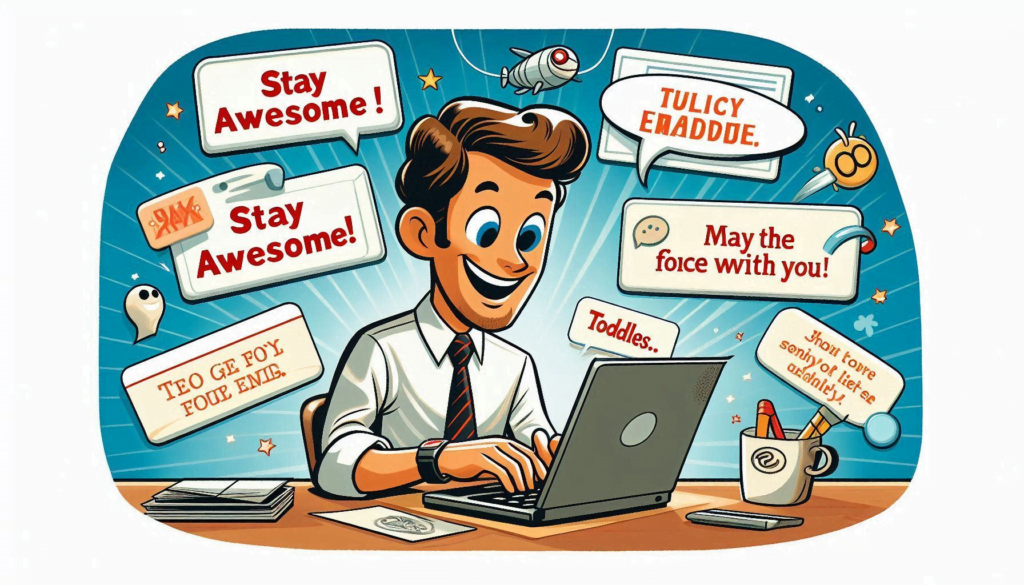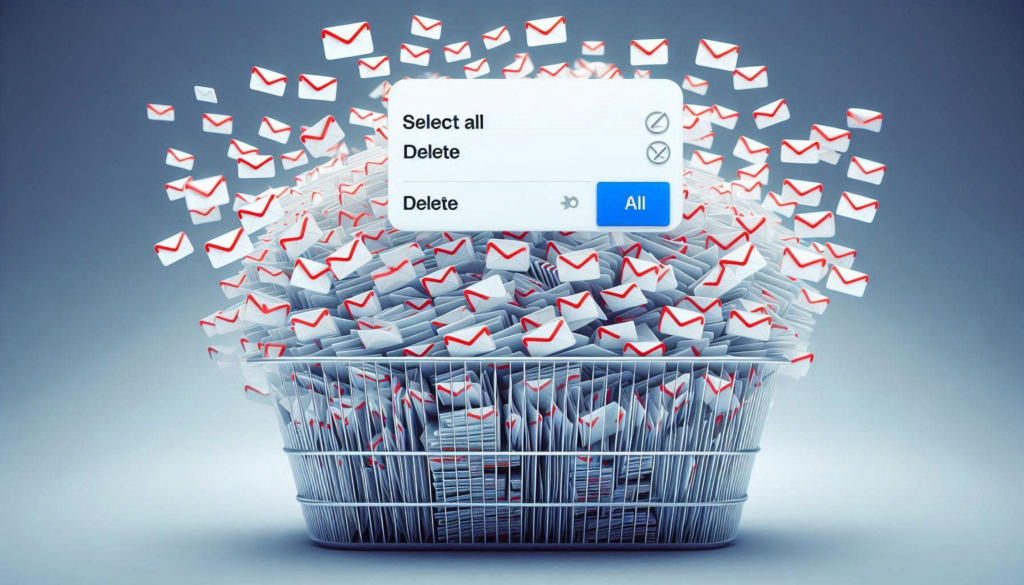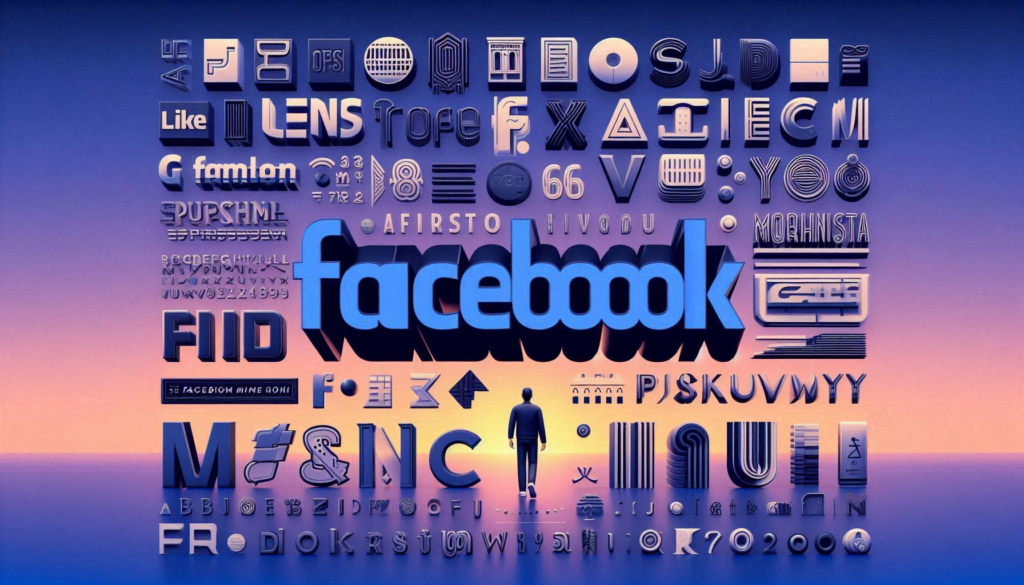In the fast-paced world of digital communication, our inboxes are flooded with messages, from the mundane to the critical. Amidst the flurry of professional exchanges, there’s a growing trend that brings a touch of humanity and humor to our screens: funny email sign-offs. These witty, clever, and sometimes downright hilarious sign-offs have the power to transform a standard email into a memorable interaction, breaking the monotony and sparking joy. As we delve into the art and impact of Funny Email Sign Offs, let’s explore how this simple tweak can enhance our digital conversations and brighten our daily routines. Welcome to this Technology Moment, where we celebrate the intersection of humor and technology in our everyday communications.
Why Email Sign-Offs Matter
Email sign-offs are often the final touch of your digital communication, and they hold more weight than one might initially think. This seemingly small component can set the tone for how your message is received and remembered. A well-crafted sign-off can enhance the overall impact of your email, leaving the recipient with a positive impression. In professional settings, it can convey a sense of professionalism and courtesy. In personal communications, it can add warmth and a personal touch.
Email sign-offs act as the concluding handshake of your correspondence. Just as you wouldn’t leave a conversation abruptly in person, it’s important to conclude your emails thoughtfully. This simple gesture shows respect for the recipient and can strengthen your relationship, whether it’s with a colleague, a client, or a friend.
The Power of Humor in Communication
Humor is a universal language that has the power to break down barriers, build connections, and lighten the mood. Incorporating humor into your email sign-offs can transform a mundane message into a memorable one. A touch of humor can make your emails more engaging and enjoyable to read, helping you stand out in a crowded inbox.
Humor can be a powerful tool in communication, especially in written form where tone and intent can sometimes be lost. A well-placed joke or a funny sign-off can add personality to your email, making it feel more human and less robotic. It can also show your creativity and sense of humor, which can be particularly effective in building rapport and fostering a positive relationship with the recipient.
Using humor in your email sign-offs can also be a strategic move. It can help defuse tense situations, bring a smile to someone’s face, and even make difficult messages more palatable. However, it’s important to strike the right balance and ensure that your humor is appropriate for the context and audience.
Table of Contents
The Basics of Email Sign-Offs
What is an Email Sign-Off?
An email sign-off is the closing phrase or statement at the end of an email, just before your name or signature. It serves as a way to conclude your message politely and leave a lasting impression on the recipient. Sign-offs can vary greatly depending on the context, ranging from formal and professional to casual and personal. Essentially, it’s the email equivalent of saying goodbye in a conversation, giving a sense of closure to your communication.
Traditional vs. Modern Sign-Offs
Traditional Sign-Offs
Traditional email sign-offs are generally more formal and have been used for many years in professional and business settings. Some common traditional sign-offs include:
- Sincerely: A classic and respectful sign-off suitable for most professional emails.
- Best regards: Slightly less formal than “Sincerely,” but still professional.
- Yours truly: Often used in formal business correspondence, especially in the legal and financial sectors.
- Respectfully: Appropriate for emails where you need to show deference or politeness, often used in military or hierarchical settings.
These traditional sign-offs are safe choices when you need to maintain a professional tone and ensure that your message is taken seriously.
Modern Sign-Offs
Modern sign-offs have evolved with the changing landscape of digital communication. They can be more relaxed, creative, and reflective of your personality. Some popular modern sign-offs include:
- Cheers: Casual and friendly, often used in creative or informal settings.
- Best: A versatile sign-off that can be both casual and professional.
- Take care: Warm and personal, suitable for emails to colleagues or acquaintances.
- Talk soon: Informal and friendly, indicating ongoing communication.
Modern sign-offs allow for more flexibility and can help convey a sense of approachability and friendliness. They are often used in industries that value creativity and personal expression.
Why Understanding the Basics Matters
Understanding the basics of email sign-offs is crucial because it helps you choose the right closing for your message, depending on the context and your relationship with the recipient. A well-chosen sign-off can reinforce the tone of your email, enhance your professionalism, and even make your correspondence more memorable.
Benefits of Using Funny Email Sign-Offs

1. Enhancing Relationships
Humor has a unique way of bringing people closer together. When you use funny email sign-offs, you add a personal touch to your communication. This can help build rapport and strengthen relationships with colleagues, clients, and even friends. A well-placed joke or witty remark at the end of an email can create a sense of camaraderie and show that you’re approachable and relatable.
2. Creating a Memorable Impression
A funny sign-off can make your email memorable and set you apart from others. It’s a small yet effective way to leave a lasting impression. When recipients remember your emails, they are more likely to respond positively and keep you in mind for future communications.
3. Lightening the Mood
Work and life can be stressful, and a little humor goes a long way in lightening the mood. Funny email sign-offs can provide a brief moment of levity in an otherwise serious or mundane exchange. This can make interactions more enjoyable and help alleviate stress, making your recipients more likely to look forward to your emails.
4. Encouraging a Positive Company Culture
In a professional setting, using humor appropriately can contribute to a positive company culture. Funny email sign-offs can foster a friendly and open environment where employees feel comfortable expressing themselves. This can lead to increased job satisfaction and morale, as employees appreciate working in a more relaxed and enjoyable atmosphere.
5. Boosting Creativity
Crafting funny email sign-offs requires a bit of creativity. This can help you exercise your creative muscles and think outside the box. It encourages you to be more imaginative in your communication, which can spill over into other aspects of your work, promoting innovative thinking and problem-solving skills.
6. Facilitating Better Communication
Humor can act as a social lubricant, making communication smoother and more effective. A funny sign-off can make your emails feel less formal and more conversational, encouraging open and honest dialogue. This can be particularly beneficial in team settings, where good communication is key to collaboration and productivity.
7. Showing Personality
Your email sign-off is a reflection of your personality. By incorporating humor, you can showcase your unique character and sense of humor. This can help humanize your emails, making you more relatable and likable to your recipients. It can also help break down barriers and make interactions feel more personal and genuine.
8. Enhancing Engagement
A funny email sign-off can increase engagement by prompting recipients to read your emails more thoroughly. If they know your emails end on a humorous note, they might be more inclined to read through to the end, ensuring they don’t miss out on your witty sign-off. This can improve overall communication effectiveness, as your messages are more likely to be fully received and understood.
When to Use Funny Email Sign-Offs
Humor in email sign-offs can be a fantastic way to leave a lasting impression, but knowing when and where to use them is crucial to ensure your message is well-received. Here’s a detailed guide on when to employ funny email sign-offs:
Understanding Your Audience
The first and foremost consideration is understanding who will be reading your email. Knowing your audience helps determine whether a funny sign-off will be appreciated or come off as unprofessional.
- Colleagues and Team Members: If you have a friendly and open relationship with your colleagues, a humorous sign-off can enhance camaraderie. It’s particularly effective in fostering a light-hearted work environment.
- Clients and Customers: Humor can work here, too, but it’s essential to gauge the nature of your relationship. If the client appreciates a relaxed tone, a funny sign-off can make your interactions more memorable.
- Superiors and Executives: While humor might be appreciated, it should be used with caution. Ensure that the tone matches the company’s culture and the individual’s personality.
Professional vs. Casual Settings
The setting of your communication plays a significant role in deciding whether to use a funny sign-off.
- Casual Emails: These are perfect for funny sign-offs. Emails to friends, family, and close colleagues are ideal places to experiment with humor.
- Professional Emails: In professional settings, the use of funny sign-offs depends on the company culture and the context of the email. For instance:
- Internal Communications: Within a team or department known for a relaxed culture, funny sign-offs can build rapport.
- External Communications: Emails to clients or stakeholders should be approached more cautiously. If you know the recipient well and have established a friendly relationship, a touch of humor might be welcomed.
Types of Communication
Different types of email communications call for different levels of formality. Here’s a breakdown:
- Routine Updates: If you’re sending regular updates or status reports to a team you’re familiar with, a humorous sign-off can keep the tone light.
- Thank You Notes: A brief, funny sign-off can leave a positive impression while showing appreciation.
- Meeting Requests: Depending on the recipient, a light-hearted sign-off can make the email stand out without undermining the purpose.
- Follow-Ups: Adding a funny sign-off to a follow-up email can soften the persistence and make the communication feel less pushy.
Frequency and Timing
While humor is engaging, overusing funny sign-offs can diminish their impact. Here are some guidelines on frequency and timing:
- Occasional Use: Using funny sign-offs occasionally ensures they remain fresh and impactful. Overuse can make them seem forced or insincere.
- Special Occasions: Significant events, such as holidays, birthdays, or company milestones, are perfect opportunities for humorous sign-offs.
- End of a Series: When concluding a series of emails on a project or discussion, a funny sign-off can leave a lasting, positive impression.
Company Culture
Aligning with the company’s culture is vital when deciding to use a funny sign-off.
- Startup or Creative Industry: These environments typically appreciate and encourage creativity and humor. Funny sign-offs can thrive here.
- Corporate or Conservative Industry: In more traditional industries, it’s essential to tread carefully. If the overall tone of communication is formal, it’s best to keep humor subtle and infrequent.
Popular Funny Email Sign-Offs
Humor is a fantastic tool to make your emails memorable and enjoyable. A well-chosen funny email sign-off can leave a lasting impression and brighten someone’s day. Here’s a detailed look at some of the most popular types of funny email sign-offs:
Classic One-Liners
Classic one-liners are short, witty, and often timeless. These sign-offs use clever phrasing to elicit a smile or chuckle. They are perfect for adding a touch of humor without overdoing it. Here are some examples:
- “Stay fabulous!”
- “Keep on rocking!”
- “May the force be with you.”
Pop Culture References
Pop culture references can make your emails relatable and entertaining, especially if you and your recipient share an interest in the same movies, TV shows, or music. These sign-offs can create a connection through shared knowledge. Examples include:
- “Live long and prosper.” (Star Trek)
- “To infinity and beyond!” (Toy Story)
- “Stay classy.” (Anchorman)
Puns and Wordplay
Puns and wordplay are a staple of humor, making them a great choice for email sign-offs. They show off your creativity and can be tailored to fit the context of your message. Here are a few punny sign-offs:
- “Catch you on the flip side!”
- “Peace out, Brussels sprout!”
- “Don’t be a stranger, ranger!”
Humorous Personal Quirks
Personal quirks and unique traits can add a personalized touch to your email sign-off, making it more memorable. These can be tailored to your personality or habits, and they can make you stand out. Examples include:
- “Your friendly neighborhood (Your Name)” (a twist on Spider-Man’s tagline)
- “Yours until the chocolate runs out.”
- “Signing off to binge-watch some Netflix.”
Situational Humor
Situational humor sign-offs relate to the specific context of your email or the time of year. These sign-offs can be particularly effective during holidays or special events. For example:
- “Elfing off until Christmas!”
- “Gobbling off until Thanksgiving!”
- “Beware of the Ides of March!”
Sarcastic or Ironic Sign-Offs
Using sarcasm or irony can be tricky, but if you know your recipient well, it can add a humorous edge to your sign-off. Just be cautious to ensure it’s received in the spirit intended. Examples include:
- “Over and out, Captain Obvious.”
- “Keep calm and pretend you’re on mute.”
- “Still alive and typing.”
Playful Rhymes
Rhymes can add a rhythmic and catchy element to your email sign-off. They’re fun to read and can be easily remembered. Some playful examples are:
- “See you later, alligator!”
- “In a while, crocodile!”
- “Hasta la vista, baby!” (Terminator)
Funny Email Sign-Offs for Different Scenarios
Office Emails
Office emails often tread the line between professional and personable. Adding a dash of humor to your sign-offs can lighten the mood and foster a friendly atmosphere. Here are some examples:
- “Keep calm and carry on typing,”
- “Yours quirkily,”
When using humor in office emails, it’s crucial to understand the company culture. Some workplaces thrive on a casual, friendly environment, while others may prefer a more formal tone. Tailor your sign-off to suit your colleagues’ expectations and the nature of your message.
Friend and Family Emails
Emails to friends and family offer the perfect opportunity to let your creativity shine. Here, humor can be more personal and playful, reflecting your unique relationship with the recipient. Consider these examples:
- “Hugs, kisses, and lots of giggles,”
- “Stay fabulous,”
- “Catch you on the flip side,”
Feel free to use inside jokes, funny nicknames, or references to shared experiences. The goal is to bring a smile to your loved ones’ faces and remind them of the special bond you share.
Networking Emails
Networking emails are a bit trickier, as you want to make a memorable impression without overstepping professional boundaries. A light touch of humor can make you stand out while still maintaining respect and decorum. Examples include:
- “Looking forward to awkward small talk,”
- “Stay awesome,”
The key here is subtlety. Opt for humor that shows your personality without risking potential misunderstandings or appearing unprofessional. Tailor your sign-off to the context of your relationship with the recipient and the tone of your conversation.
Customer Service Emails
Customer service emails should be polite and helpful, but that doesn’t mean they have to be boring. A touch of humor can humanize your brand and make customers feel more connected to you. Try these examples:
- “Wishing you a day as wonderful as you are,”
- “Here to help, with a smile,”
- “Have a fantastically funny day,”
Ensure your humorous sign-offs align with your brand’s voice and the nature of the interaction. While it’s important to be personable, the primary goal is to address the customer’s needs effectively and respectfully.
Emails to Your Boss
When emailing your boss, humor should be used sparingly and thoughtfully. The sign-off should be lighthearted but still convey respect. Examples might be:
- “Over and out,”
- “Your loyal spreadsheet warrior,”
- “May the workflow be with you,”
Always consider your boss’s personality and your relationship with them. Some supervisors appreciate a bit of humor, while others may prefer a strictly professional tone. Gauge the situation and choose a sign-off that reflects your rapport.
Client Emails
Client emails require a professional demeanor, but a hint of humor can make your correspondence more engaging. It’s all about striking the right balance. Here are a few examples:
- “Cheerfully yours,”
- “Your partner in progress,”
- “Wishing you success and smiles,”
Ensure your humor is appropriate and non-offensive. The goal is to build a positive relationship with your clients, showing that you are both professional and approachable.
The Impact of Funny Email Sign-Offs on Company Culture
It shapes the way employees interact with each other, influences job satisfaction, and even affects productivity. Funny email sign-offs might seem like a small detail, but they can have a surprisingly significant impact on company culture. Here’s how:

Boosting Morale
Humor has a powerful effect on people’s mood. Incorporating funny sign-offs in emails can lighten the atmosphere, even in a high-pressure work environment. When employees see a humorous sign-off, it can bring a smile to their faces and provide a brief respite from their busy schedules. This can lead to a more positive overall mood, helping to combat stress and burnout.
For example, an email ending with “Stay awesome!” or “Keep rocking!” can make the recipient feel appreciated and valued, contributing to a more upbeat and motivated workforce.
Encouraging Creativity
Allowing space for humor in email sign-offs can encourage employees to think creatively. When team members feel free to express themselves in unique and funny ways, it can foster an environment where creativity is celebrated. This not only makes communication more enjoyable but also inspires innovative thinking across the board.
Imagine an email thread where everyone is trying to outdo each other with the funniest sign-offs. This playful competition can stimulate creative thinking and lead to more innovative solutions in other areas of work.
Strengthening Team Bonds
Funny email sign-offs can also help to build stronger relationships among team members. Sharing a laugh over a clever or witty sign-off can create a sense of camaraderie and shared experience. This can be especially important in large companies or remote teams where employees might not interact face-to-face regularly.
For instance, an email closing with “Yours humorously” or “Laugh out loud” can create a light-hearted connection between the sender and recipient, reinforcing a sense of belonging and teamwork.
Promoting a Positive Work Environment
A workplace that embraces humor tends to be more enjoyable and less intimidating. Funny email sign-offs can contribute to creating a work environment where employees feel comfortable expressing themselves and having fun. This can lead to higher job satisfaction and lower turnover rates, as employees are more likely to stay in a workplace where they feel happy and engaged.
Consider the difference between an email signed off with a standard “Best regards” versus a playful “May the force be with you.” The latter can make the workplace feel less formal and more welcoming, encouraging open communication and collaboration.
Facilitating Open Communication
Humor can break down barriers and make communication more approachable. When employees use funny sign-offs, it can signal that they are open, friendly, and approachable. This can be particularly valuable in hierarchical organizations where junior employees might feel intimidated reaching out to senior staff.
For example, if a manager consistently uses humorous sign-offs like “Your friendly neighborhood boss” or “Captain of the ship,” it can make them seem more approachable and less intimidating, encouraging open and honest communication.
Enhancing Employee Engagement
Engaged employees are more productive, more committed, and more likely to contribute to the company’s success. Funny email sign-offs can be a simple yet effective way to keep employees engaged. When employees look forward to reading emails because they enjoy the humor, it can increase their overall engagement with their work.
For instance, a team that frequently uses funny sign-offs like “Over and out” or “Catch you on the flip side” might find that their internal communication is more lively and engaging, leading to better collaboration and productivity.
Reflecting Company Values
Finally, the use of funny email sign-offs can reflect and reinforce a company’s values and culture. If a company prides itself on being innovative, creative, and fun, encouraging employees to use humorous sign-offs can be a natural extension of these values.
For example, a tech startup that emphasizes creativity and innovation might encourage its employees to use sign-offs like “Stay curious” or “Keep innovating,” reinforcing the company’s brand and culture in every communication.
Funny Email Sign-Offs for Remote Work
As remote work becomes the new norm for many professionals, finding ways to keep communication engaging and personable is more important than ever. One effective way to add a bit of warmth and humor to your digital correspondence is through funny email sign-offs. These sign-offs can serve as a breath of fresh air in an otherwise formal and sometimes impersonal medium. Here’s how funny sign-offs can play a significant role in remote work and how to use them effectively.
1. Keeping the Team Connected
Remote work can sometimes feel isolating, especially when team members are spread across different locations. A well-chosen funny email sign-off can help bridge that gap, creating a sense of camaraderie and shared humor. Imagine signing off with something like, “Over and out from the home office,” or “Logging off to rescue my cat from the printer.” Such sign-offs not only lighten the mood but also help to create a more relaxed and friendly atmosphere within the team.
2. Adding Personality to Virtual Communication
In virtual meetings and emails, it’s easy for personalities to get lost behind screens. Funny sign-offs can infuse a bit of individual character into your messages, making you more memorable to your colleagues. These playful sign-offs can make your emails stand out and help others get a better sense of your personality, fostering a more engaging work environment.
3. Encouraging a Positive Work Culture
Humor can be a powerful tool for boosting morale and creating a positive work culture. Funny email sign-offs can contribute to this by injecting some light-heartedness into daily communications. When used appropriately, they can help reduce stress and make interactions more enjoyable. For instance, signing off with, “May your coffee be strong and your Monday be short,” can bring a smile to someone’s face and start their week on a positive note.
4. Navigating Humor in Professional Settings
While humor is beneficial, it’s essential to gauge the appropriateness based on your audience and the context. For remote teams that are familiar with each other and share a good rapport, humorous sign-offs are likely to be well-received. However, in more formal or newly formed teams, it might be better to use humor cautiously until you understand the group dynamic. For example, something like, “Wishing you fewer email alerts and more coffee breaks,” strikes a balance between being light-hearted and professional.
5. Incorporating Team-Specific Humor
If your remote team has its own inside jokes or shared experiences, incorporating these into your email sign-offs can strengthen team bonds. For example, if your team often jokes about working through endless coffee pots, you might sign off with, “Powered by coffee and sheer determination.” This type of personalized humor not only makes your communication more engaging but also reinforces team spirit.
6. Balancing Humor with Clarity
Even while incorporating humor, it’s important to ensure that your sign-offs don’t detract from the clarity of your message. The primary goal of your email should still be communicated effectively, with the humor serving as a light touch rather than the main focus. A sign-off like, “Signing off before my Wi-Fi decides to take a nap,” is humorous yet keeps the tone professional.
How to Introduce Funny Sign-Offs in a Professional Environment
Introducing funny email sign-offs in a professional environment requires a thoughtful approach to ensure that humor enhances communication rather than undermines it. Here’s a detailed guide on how to incorporate humor into your sign-offs effectively:
1. Understand the Company Culture
Before introducing funny sign-offs, it’s crucial to gauge the existing company culture. Some workplaces thrive on a relaxed and casual atmosphere, where humor is appreciated and encouraged. In contrast, other organizations may have a more formal culture where humor could be perceived as unprofessional. To get a sense of your company’s culture:
- Observe Communication Patterns: Look at how your colleagues and supervisors communicate. Are there signs of humor in their emails or meetings?
- Consult Your Manager: If you’re unsure, ask your manager or team leader for their perspective on humor in professional communication.
- Assess Previous Examples: Review past email exchanges for instances where humor was either used effectively or poorly.
2. Start Small and Test the Waters
Once you’ve assessed the environment, start introducing humor gradually. This helps in gauging how well it is received and allows for adjustments if necessary.
- Pilot Test: Begin by using funny sign-offs with colleagues you know well and who are likely to appreciate the humor.
- Observe Reactions: Pay attention to their responses. Are they laughing or showing signs of appreciation? Or are they indifferent or uncomfortable?
- Adjust Accordingly: Based on feedback, decide whether to continue, modify, or scale back the use of humorous sign-offs.
3. Choose Appropriate Humor
Not all types of humor are suitable for professional settings. Ensure that your sign-offs are:
- Inoffensive: Avoid humor that could be considered controversial or insensitive. Stay clear of jokes about race, gender, religion, or personal beliefs.
- Relevant: Choose humor that aligns with your industry or the subject matter of your email. For example, a tech-related joke might be more appropriate in a tech company than in a law firm.
- Inclusive: Ensure that your humor is relatable and understandable to everyone in your audience.
4. Balance Humor with Professionalism
Your sign-off should reflect both your personality and your professionalism. Here’s how to strike that balance:
- Keep It Brief: A humorous sign-off should be short and to the point, not overshadowing the main content of your email.
- Be Consistent: If you decide to use humor, be consistent in its application. Randomly switching between formal and humorous sign-offs can be confusing.
- Match the Tone: Ensure the humor matches the tone of the rest of your email. For example, if your email is serious, a light-hearted sign-off might be out of place.
5. Communicate the Change
If you’re implementing funny sign-offs across a team or department, communicate this change clearly.
- Send a Memo: Consider sending a brief note to your team explaining the new sign-off style and the intention behind it.
- Encourage Feedback: Invite colleagues to share their thoughts on the new sign-offs. This creates an open dialogue and helps in refining the approach.
6. Monitor and Adapt
After introducing funny sign-offs, continuously monitor their impact and adapt as needed.
- Seek Feedback: Regularly check in with colleagues to gauge their reaction and gather feedback on the use of humor.
- Adapt to Changes: Be prepared to adjust your sign-offs based on evolving workplace dynamics or feedback from others.
By following these steps, you can introduce funny email sign-offs in a way that enhances communication, fosters a positive atmosphere, and maintains professionalism. Humor, when used appropriately, can be a powerful tool for building relationships and making your emails more memorable.
Funny Email Sign-Offs in Different Cultures
When it comes to using humor in email sign-offs, cultural context is crucial. What might be hilarious in one culture could be misunderstood or even offensive in another. Understanding these nuances can help you navigate the diverse world of international communication with sensitivity and finesse.
Understanding Cultural Nuances
Different cultures have varying attitudes toward humor and formal communication. For example:
- Western Cultures: In many Western countries, such as the United States and the United Kingdom, humor is often embraced in professional settings as long as it is light-hearted and non-offensive. Puns, playful language, and even pop culture references can be well-received, especially if you have an established rapport with the recipient.
- Asian Cultures: In many Asian cultures, such as Japan and China, formal communication is highly valued. Humor, especially if it is unconventional or sarcastic, may not always be appropriate in professional emails. It’s generally better to err on the side of formality and respect. However, with close colleagues who understand your personality, a carefully chosen humorous sign-off might be acceptable.
- Middle Eastern Cultures: Humor in professional settings can be complex in Middle Eastern cultures. It’s important to be cautious with humor, as cultural and religious sensitivities are prominent. A simple, respectful sign-off is often preferred, avoiding anything that could be construed as disrespectful or too casual.
- Latin American Cultures: Many Latin American cultures are known for their warmth and personal touch in communication. Humor can be a positive addition, but it’s important to ensure that it aligns with local customs and is not overly informal.
Global Email Etiquette
When using funny email sign-offs in a global context, consider the following guidelines:
- Know Your Audience: Always tailor your sign-off to the recipient’s cultural background and the nature of your relationship. If you’re unsure about how your humor will be received, it’s safer to stick with a more neutral, professional sign-off.
- Avoid Sensitive Topics: Steer clear of humor that involves politics, religion, or sensitive social issues. What may seem like a harmless joke in one culture could be perceived as offensive in another.
- Be Aware of Language Barriers: Humor often relies on language nuances that may not translate well. Puns and wordplay, for example, might not have the same impact or could be confusing when translated.
- Respect Formalities: In many cultures, the formality of communication reflects respect and professionalism. If you’re working with international clients or colleagues, maintaining a professional tone in your sign-offs can be a sign of respect and can help build positive relationships.
Tips for Using Humor Effectively
- Test the Waters: If you’re introducing humor in a cross-cultural context, start with less risky jokes and gauge the recipient’s response before using more playful sign-offs.
- Seek Feedback: When in doubt, ask colleagues or cultural experts for their input on whether your humor is appropriate for the intended audience.
- Customize Your Approach: Consider the specific cultural norms and preferences of your audience. Tailoring your humor to fit these expectations shows respect and understanding.
The Future of Email Sign-Offs
As communication continues to evolve, so too do the ways we sign off our emails. What was once a simple “Best regards” or “Sincerely” is now becoming more varied and personalized. Here’s a detailed look at what the future might hold for email sign-offs:

Trends and Predictions
- Increased Personalization
- Tailored Sign-Offs: Expect email sign-offs to become more personalized, reflecting the individual’s personality and preferences. With advances in AI and machine learning, email systems may suggest sign-offs based on the content of the email or the recipient’s profile, making each sign-off more relevant and engaging.
- Dynamic Content: Future sign-offs might include dynamic elements like updated quotes or personalized messages that change based on recent interactions or events, providing a more contextual and meaningful closure to emails.
- Integration with Digital Tools
- Email Signatures as a Service: Sign-off tools might evolve into full-service solutions, integrating with calendar apps, social media, and project management tools. This could allow users to automatically include relevant details in their sign-offs, like upcoming events or recent achievements.
- Interactive Elements: As technology advances, we might see sign-offs that include interactive elements, such as clickable links to recent blog posts or multimedia content, making them more engaging and informative.
- Increased Use of Humor and Personality
- Casualization of Communication: The trend towards more casual communication in professional settings is likely to continue, leading to more creative and humorous sign-offs. Organizations that embrace a relaxed communication style may encourage employees to use sign-offs that reflect their personal style and sense of humor.
- Branding Opportunities: Companies might leverage sign-offs as part of their branding strategy, using them to reinforce company culture and values. This could include playful taglines, branded hashtags, or themed sign-offs that align with marketing campaigns.
Technology’s Role in Evolving Email Sign-Offs
- AI and Automation
- Smart Suggestions: AI tools could offer real-time suggestions for sign-offs based on the email’s content, the sender’s tone, and the recipient’s preferences. This technology could help ensure that sign-offs are appropriate, engaging, and aligned with the overall message.
- Automated Personalization: Machine learning algorithms might analyze past communications to generate sign-offs that reflect the sender’s unique style and relationship with the recipient, making each sign-off feel more personal and genuine.
- Enhanced Customization
- Custom Templates: Users may have access to customizable templates that allow them to create and save multiple sign-offs for different contexts. This could simplify the process of finding the perfect sign-off for any given email.
- Interactive Sign-Offs: Future email systems might support interactive sign-offs that include features like embedded surveys, clickable links to recent articles, or even short video clips. This could make sign-offs more engaging and provide additional value to recipients.
- Cultural Sensitivity
- Globalization of Communication: As remote work and global collaboration become more common, email sign-offs will need to accommodate diverse cultural norms and preferences. Future email systems might include features to help users navigate cultural sensitivities and avoid missteps in international communication.
Conclusion
In this section, you’ll want to provide a concise summary of the main points covered in your article about funny email sign-offs. Begin by highlighting why email sign-offs are an important element of communication, setting the stage for the humor discussion. Summarize the benefits of using funny sign-offs, such as enhancing relationships, creating memorable impressions, and lightening the mood. Reflect on the guidelines for using them appropriately, including understanding your audience, and maintaining a balance between professionalism and humor.
Encourage readers to experiment with incorporating humor into their own email sign-offs. Suggest that they start by considering their own style and their audience’s preferences. Emphasize that while it’s essential to remain professional, there’s often room for a touch of personality and fun. Invite them to take the insights and examples provided in the article and adapt them to fit their own unique voice and circumstances.
Reiterate that funny email sign-offs can be a great way to make interactions more enjoyable and memorable, both in professional and personal contexts. Remind them that humor, when used appropriately, can help build stronger connections and enhance the overall tone of their communications.
FAQs – Frequently Asked Questions
Funny email sign offs for work?
- Keep calm and email on!
- Cheers to inbox zero!
- Stay classy, not sassy.
- Thanks a latte for your time!
Funny email sign offs reddit?
- In inbox we trust!
- Ctrl + Alt + Appreciate ya!
- Stay groovy, email buddy!
- May your Wi-Fi be strong and your spam folder empty.
- Emails done, mic drop!
Funny email sign offs TikTok?
When it comes to funny email sign-offs that TikTok users love, creativity is key! “Gotta bounce—my cat’s trying to FaceTime again.” Remember, the best sign-offs reflect your personality and leave a smile on the recipient’s face!
Funny email sign offs gen z ?
Sure, here’s a funny email sign-off popular with Gen Z: “Sent from my phone, which means this email probably has more typos than a kindergarten newsletter. Sorry about that!” It adds a playful touch while acknowledging the quirks of digital communication.
Funny email sign offs for out of office ?
- Gone fishing (for emails)! I’ll be back to tackle your messages soon.
- Currently out of the office, finding new and exciting ways to procrastinate.
- On a break to recharge my creative batteries—expect a fully charged return soon!
- Out like a lightbulb—gone to brighten up somewhere sunny. Back in a flash!
- Currently out of the office, but if you have any urgent needs, try calling Hogwarts.
- Taking a leave to explore new dimensions of Netflix. I’ll respond once I find the remote.
- Out of the office, but never out of touch—unless there’s poor Wi-Fi! Back online shortly.
Funny email sign offs for teachers ?
- Stay sharp, like a pencil that refuses to be chewed!
- Teaching with puns: It’s how I roll (call)!
- Keep calm and teach on (while secretly hoping for a snow day).
- Wishing you fewer grading piles and more coffee smiles!
- May your classroom be as organized as your inbox isn’t.
- Remember, teaching is the art of convincing kids that they want to learn.
- Signing off to grade papers like a ninja—swiftly and silently.













